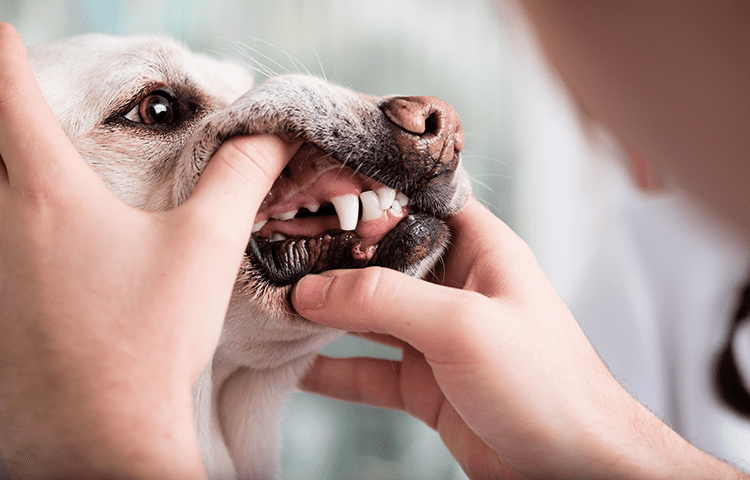Protect your pets: Common toxic plants to avoid
How to identify toxic plants and recognise signs of pet poisoning.
Read more17 October 2024
Bringing a furry friend into your home is exciting, but it also comes with big responsibilities. Keeping your pet healthy and happy is key, and having dog insurance can really help with the unexpected costs.
Let’s dive into the different types of dog insurance out there and see what they cover, what they don’t, and if it’s really worth it.
Dog insurance is there to help with those surprise vet bills that can really add up. A policy works much like health insurance for humans. You pay a regular premium, and in return, the policy pays towards health costs.
Depending on the policy you choose, pet insurance can cover accidents, illnesses, and routine care for life. When needed, you simply make a claim to your insurer, and once approved, they’ll reimburse you for the cost, after any deductibles like excesses or co-payments.
While the specifics of cover can change depending on which policy you choose, in Australia, most dog insurance plans fit into three main categories.
This is the most basic type of dog insurance, covering things like injuries from accidents. So if your energetic pup breaks a bone, gets a snake bite, or eats something they shouldn’t, accident cover can help with the vet bills.
A step-up from an accident-only policy, this type of policy kicks in for all sorts of diseases and ailments. Whether it’s a simple respiratory infection or something more serious like cancer, a plan like this can help with the costs of diagnostics, treatments, and meds.
Comprehensive plans can cover both accidents and illnesses, along with alternative and complementary treatment fees, third-party legal liability cover and more.
The most comprehensive dog insurance plans are ‘Umbrella for life’ or ‘Covered for life’ policies. These plans can cover you for ongoing treatment of injuries or illnesses throughout your dog’s life.
Once you pick your policy type, there’s usually the choice of personalising your plan with optional extras.
These extras can help you to cover the cost of alternative treatments like hydrotherapy, the costs of advertising and rewards if your dog goes missing, and third-party liability cover. Other add-ons can help you cover the costs of routine care like vaccinations, health check-ups, flea treatments, and teeth cleaning.

No matter which Petcover policy you pick, we make sure the essentials of dog care are included. Here’s a summary of what you’ll find covered by our policies.
Veterinary bills
Cover unexpected vet bills, including consultations, diagnostics, and treatments each year.
Surgery and treatment fees
From minor surgeries to complex operations, this covers surgical procedures, meaning your dog gets the medical help it needs. Policies can cover alternative and complementary treatment too.
Prescription medication
If your dog needs medication for a newly diagnosed long-term condition or a temporary infection, pet insurance can cover the costs, making treatments more affordable.
If your dog accidentally causes damage to property or injures another person, third-party liability insurance can cover the cost of compensation, legal fees and other associated expenses.
Cover for unexpected boarding fees if your dog needs somewhere to stay if you’re admitted to hospital as an in-patient.
If your dog goes missing we can help cover the costs of advertising to help find them, including offering a reward for their safe return.
If your dog passes away due to illness or injury, you can receive up to $2,000 in financial support to help with the costs.
If your dog is stolen or goes missing, we’ll compensate you up to $2,000 for the loss of your pet.
If life-saving treatments for your dog disrupt your travel plans, you can claim back up to $2,000 in expenses for your cancelled holiday.
Your policy will pay towards routine care for your dog. Cover includes health checks, vaccinations, de-sexing, teeth cleaning and more.
You can claim up to $20,000 a year, depending on the plan you pick. This is what’s called your ‘maximum benefit’. It can cover all sorts of expenses like vet fees, emergency boarding, and even if you lose a pet. For example, you might claim $16,000 for vet bills and $4,000 on other expenses, or you could use the whole $20,000 just for vet care.
For more information see our dog insurance plans page and our policy documents.
We get it. Picking the right insurance for your furry friend can feel overwhelming with so many options. So, here’s what dog insurance covers, and what it doesn’t.
Dog vaccinations aren’t typically covered in dog insurance policies as they’re classed as routine care. But if this is something you’d like to cover, you can add ‘Day to day care’ optional extra to our Mid-range policy and we’ll contribute towards your dog’s vaccinations each year. Find out more on our dog insurance plans page.

Cover for dental care is limited to injuries or accidents that affect your dog’s teeth, such as fractures.
If you’d like to add cover for dental, or teeth cleaning, simply add the ‘Day to day care’ optional extra to one of our Mid-range plans. Each year, your policy can pay towards the cost of teeth cleaning, keeping your dog’s teeth in great shape.
Neutering is classed as a routine procedure and is not covered by standard dog insurance. But, if you add the ‘Day to day care’ optional extra to our Mid-range policy, we can pay $50 towards the cost of de-sexing your dog. Find out more on our dog insurance plans page.
Dog insurance can cover the cost of surgery, whether it’s for an illness or an injury. Emergency surgeries, like fixing a severe injury, or planned ones, like removing a tumour, can get pricey, so pet insurance can help cover, or contribute towards these costs.
Our standard dog policies do not include cover for pregnancy and related care, as these are not considered unexpected illnesses or accidents. But we can cover your new puppies! Gift your dog’s puppies the best start in life with 6 weeks of pet insurance cover. It’s free for you, and free for the new owner! Visit our breeders page for more information.

We can’t cover your dog for any health issues they had prior to buying a policy with us. But we can still insure your dog by excluding the existing condition and any related issues.
Depending on the medical condition excluded, there may be an opportunity to cover it after an ‘exclusion review.’ This review typically occurs 12 months after your policy is initiated and may result in the cover of a previously excluded condition if certain criteria are met.
Some other insurers may cover pre-existing conditions from the off, but you’re likely to pay a higher monthly premium for that.
Yes, we can cover your dog for cancer, provided it is not a pre-existing or excluded condition on your policy. Our policies can cover the costs for diagnostic tests, surgery, chemotherapy, and other treatments. We’re unable to cover transplant surgery and stem cell treatments.
Since not all policies cover cancer as standard, it’s important to check your policy before you buy as treating cancer can be one of the most costly conditions.
Dog insurance can cover the cost of prescribed medications needed for treating illnesses or injuries. Whether it’s antibiotics or meds for managing a chronic condition, as long as your vet prescribes it for a condition that’s covered by your Petcover policy, we can cover it.
Our policies cannot cover pre-existing medical conditions (any condition your dog may have prior to taking out a dog insurance policy with us), so you’ll only be covered for medication relating to a newly diagnosed health condition.
X-rays are typically covered as part of your veterinary fees. If your pup needs an x-ray to figure out what’s going on or to check for internal injuries, dog insurance can help cover the vet bill.
Dog insurance does not generally cover standard training classes. However, if your dog requires behavioural training due to a diagnosed issue like anxiety or aggression, some of our policies may cover this under behavioural therapy. Make sure to check whether your insurance includes this option, as it may be considered an additional extra or require a recommendation from your vet.
Yes, if your dog is involved in a dog attack, third-party liability insurance can help cover the vet bills and treatment for incidents where your dog bites another person or animal. This type of cover can help pay for legal expenses, compensation claims and medical costs for the injured party. It’s an important safeguard, especially for breeds prone to aggressive behaviour.
Yes, cataracts can be covered by dog insurance as long as it’s not a pre-existing medical condition. A good policy can cover the costs of diagnostic tests and surgery.
You’ll find that most of our comprehensive policies include cover for death due to illness or injury as standard. If it isn’t included on a policy you choose, you may have the chance to add it as an optional extra. While this cover won’t ease the pain of losing your pet dog, it can help to cover the costs of cremation or burial during a difficult time.
Our policies cover your dog for hip dysplasia, as long as it’s not a pre-existing condition. If you’ve got a young dog or a certain breed that’s genetically prone to this, it’s especially important that your dog insurance covers this.

Dog insurance acts as a reliable safety net for you and your dog, helping to cover unexpected veterinary bills from accidents or illnesses. It helps manage surprise costs, letting you focus on your dog’s health rather than your wallet. If you can comfortably handle vet bills out of pocket, insurance might not be necessary. However, for peace of mind, dog insurance can be a smart choice.
Prepare for life’s unexpected moments with Petcover dog insurance and get a quote today.